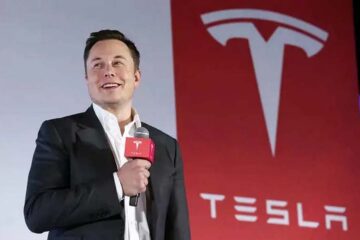Evaluating Tesla’s Crucial Juncture

Tesla finds itself at a critical juncture following what one analyst describes as a “seminal moment” marked by the significant challenges encountered during its first quarter.
Unforeseen Decline in Deliveries
Tesla reported delivering approximately 386,800 cars in the first quarter, a figure that fell significantly short of Wall Street expectations. This represents a drop of around 20% from the previous quarter and over 8% compared to the same period last year. It’s notable as the first year-over-year decline in quarterly deliveries for Tesla since 2020.
Analyst’s Perspective
Wedbush Securities’ analyst Dan Ives characterized the first quarter’s performance as an “unmitigated disaster,” emphasizing its significance as a pivotal moment for Tesla’s future trajectory. Ives underscores the urgency for Elon Musk to reverse this downward trend, warning of potential “darker days” ahead if corrective actions are not taken promptly.
Factors Contributing to the Decline
Tesla attributed the decline in deliveries to various factors, including challenges associated with the production ramp-up of its updated Model 3, an arson incident at its Gigafactory in Berlin, and supply chain disruptions stemming from the Red Sea conflict.
Long-Term Outlook
Despite the short-term setbacks, Ives maintains a bullish outlook on Tesla’s long-term prospects and retains an outperform rating. He emphasizes the importance of strategic considerations such as pricing adjustments, the introduction of new models, the role of software revenue, and the trajectory of Tesla’s artificial intelligence (AI) initiatives in driving future growth.
Industry-wide Challenges
Tesla’s experience reflects broader challenges facing the electric vehicle (EV) market, with softening demand impacting EV sales across the industry. Competition in key markets, particularly in China, poses additional hurdles for Tesla, as rivals like BYD vie for market share.
Response Strategies
In response to declining sales, Tesla has implemented price reductions and introduced initiatives such as offering test drive demos of its Full Self-Driving software to prospective customers. However, challenges persist, including concerns over Musk’s controversial behavior affecting Tesla’s brand perception, particularly among US consumers.
Future Prospects
As Tesla navigates these challenges, its ability to adapt its strategies, address market dynamics, and sustain consumer confidence will be critical in determining its future success. The company’s upcoming actions and performance will be closely monitored by investors and industry observers alike as it seeks to overcome current obstacles and maintain its position as a leader in the EV market.





















